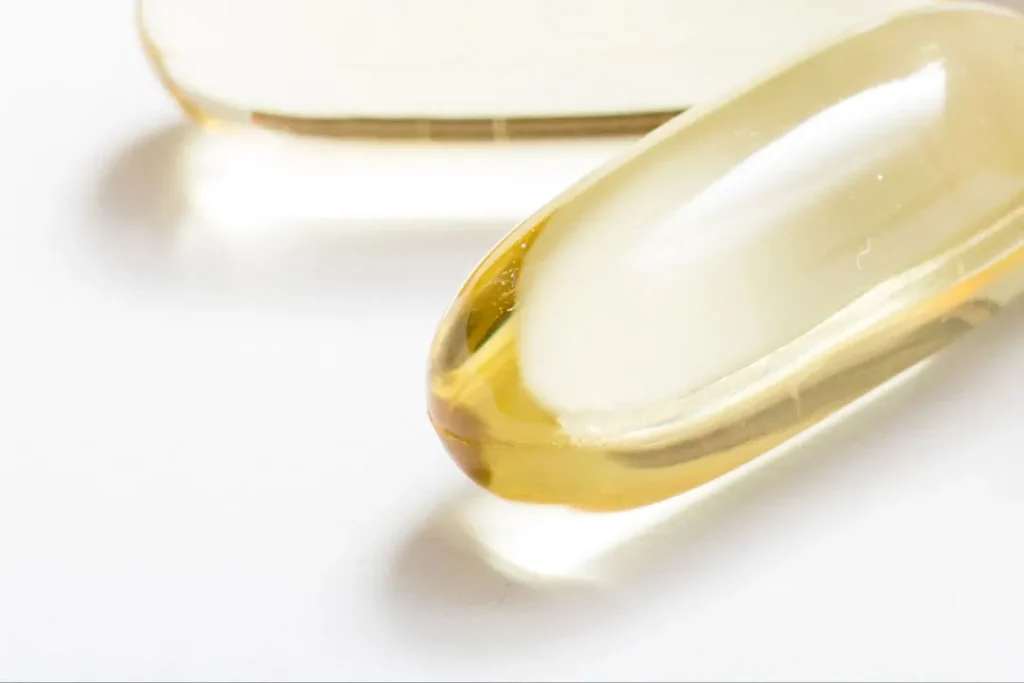Supplements come in all shapes and sizes, but when it comes to helping your heart, it’s important not to fall for a hoax. Read on to learn more about why two amazing supplements can have a huge impact on your heart health.
Taking care of your heart is crucial for your overall well-being and vitality. Your heart beats ceaselessly to ensure that oxygen-rich blood circulates throughout your body, delivering nutrients to your tissues and organs while removing waste products and carbon dioxide. When your heart is healthy from exercise and proper nutrition, it can withstand strenuous physical activities or stressors that would otherwise be too taxing for an unhealthy heart.
Moreover, maintaining a healthy heart allows you to engage in regular physical activities without experiencing undue fatigue or shortness of breath. Regular exercise helps strengthen cardiac muscles while improving endurance levels over time. A strong and resilient heart fosters longevity, enabling you to lead a fulfilling life with precious moments shared among loved ones.
You May Also Like:
Paul Stamets Mushroom Supplements vs Real Mushrooms
5 Great Ways Liquid Protein Supplements Can Take Your Fitness to the Next Level
Support Your Heart Health: Comparing 2 Top Supplements is an original (OptimalHealthNews) article.
Market for and popular dietary supplements
The market for nutritional supplements is expanding as more people focus on their personal health and personalized care products become more available. The most popular dietary supplements include fish oil, multivitamins, Vitamin D, and CoQ10, in that order, while probiotics are growing in popularity. Since 2014, over two-thirds of Americans have used dietary supplements regularly. While there may be a small selection of randomized clinical trials, the fact that those who take supplements usually have healthier lifestyle habits and diets is indisputable. Below is a summary of some of the popular ones:
Omega-3 Fatty Acids: Fish oil supplements, which contain omega-3 fatty acids (EPA and DHA), have been associated withpotential cardiovascular benefits, such as reducing triglycerides, inflammation, and blood pressure.
Coenzyme Q10 (CoQ10):CoQ10 is an antioxidant that plays a role in cell energy production. Studies suggest it improves heart function and reduces oxidative stress.
Vitamin D: Some research suggests a link between low vitamin D levels and increased cardiovascular risk. Adequate vitamin D levels may help support heart health.
L-Carnitine: L-Carnitine is involved in energy metabolism and may help improve heart function, especially in people with certain heart conditions.

Not all supplements are created equal
When differentiating between good and bad supplements, there are several key factors to consider. These factors can significantly influence the effectiveness, safety, and overall quality of a supplement. Let’s take a closer look at each selected key factor and discuss why they are vital when choosing the perfect supplement:
Sourcing and Production: Organic vs. Artificial
The source of the ingredients and production methods can significantly impact a supplement’s quality and safety. Organic sourcing can indicate consistently higher quality ingredients, free from synthetic chemicals and pesticides.
Ease of Use and Compatibility:
Many people take multiple supplements daily. Ease of use includes factors such as the number of pills or doses required, timing of consumption, and potential interactions with other supplements or medications. A convenient supplement compatible with your lifestyle will more likely be taken consistently.
Bioavailability and Absorption:
The body’s ability to absorb and utilize the nutrients from a supplement is crucial. High bioavailability ensures that the active ingredients are effectively absorbed into the bloodstream, maximizing the potential benefits. Bioavailability is essential and should be considered high on your desirable list.
Transparent Labeling and Ingredient List:
A good supplement should have clear and transparent labeling, providing accurate information about the ingredients, their concentrations, and any potential allergens.
Clinical Research and Evidence:
Scientific research and clinical studies provide evidence of a supplement’s effectiveness and safety.
Quality Assurance:
Supplements that undergo rigorous testing are more likely to be high-quality and contaminant-free.
Dosage and Potency:
The proper dosage and potency are crucial for achieving desired results. Good supplements provide accurate information about the recommended dosage and contain the stated amount of active ingredients.
Potential Side Effects and Interactions:
Understanding potential side effects and interactions with other supplements or medications is essential for safety. Good supplements provide transparent information about possible adverse effects and contraindications, helping users make informed decisions.
Regulatory Compliance:
Choosing supplements manufactured in compliance with relevant regulatory standards ensures they meet quality and safety requirements. Look for supplements produced in facilities adhering to Good Manufacturing Practices (GMP).

Two premium supplements, a comparison
Let’s look at two premium Omega-3 fatty acid supplements using our guidelines. One is called Thorne Omega 3 with CoQ10 (made with fish oil), and the other is Kori Krill Oil Softgels.
Organic versus Artificial
Omega-3 fatty acids can be obtained in highly purified form from either natural resource. Thorne Omega 3 with CoQ10 is purified through molecular distillation, which provides a pure product free of mercury and other contaminants. Krill oil, sourced from crustaceans, is isolated by extraction. Because of the energy required, molecular distillation is less efficient. The omega-3 fatty acids derived from Antarctic krill extraction are far less energy intensive.
Bioavailability and Absorption
Although both krill and fish oil contain omega-3 fatty acids, krill oil is believed to have higher bioavailability, meaning it is absorbed more easily. While Omega-3 fatty acids from fish oil are derived from triglycerides, the unique feature of krill oil is the omega-3 fatty acids are bound to phospholipids. This structural difference confers superior absorption and use in the body. In addition to omega-3 fatty acids, Kori Krill Oil softgels contain other nutrients like choline. It is noteworthy that Thorne’s product does have 30mg of CoQ10, which is within the recommended range by the National Library of Medicine.
Nancy Chan, the CEO of Kori Krill Oil, points out the importance of the Omega-3 oils being bonded to phospholipids, making them more soluble and absorbable in the gut. She says, “A phospholipid molecule consists of two fatty acids, which are long chains of carbon and hydrogen molecules. They are attached to a glycerol backbone that further links to a phosphate group such as choline.” The body so easily absorbs these phospholipids because they mimic the phospholipids found in your cell membranes.
Dosage, potency, side effects, regulatory compliance, and sustainability
Regarding the preceding parameters, both Kori Krill Oil and Thorne Omega-3 fatty acids state dosages, potency based on clinical results, and potential side effects. Both companies comply with the US Food and Drug Administration requirements promulgated under Title 21 of the Code of Federal Regulations.
Both companies are well-run and comply with all regulations to provide their customers with the best possible product. Furthermore, the benefits of omega-3 fatty acids are well-established in their literature. Consequently, defining a superior product under these parameters is challenging at best. However, it is indisputable that bonding the omega-3 fatty acids naturally to phospholipids is a clear advantage when considering bioavailability. The phospholipid-bonded omega-3s have higher absorption than triglyceride-based fish oil. In addition, Kori Krill Oil’s sustainability is noteworthy. They are certified sustainable by the Marine Stewardship Council and Friend of the Sea. They have also received an A-rating from the Sustainable Fisheries Partnership for 7 years running.
Head-to-head comparison winner: Kori Krill Oil
While both products are premier supplements, Kori Krill Oil Softgels land ahead due to their superior bioavailability and reputation as a sustainable brand. When choosing a supplement for heart health, you want to ensure that the body can absorb as many available nutrients as possible, or your effort is moot. Because Kori Krill Oil is bound with phospholipids, the Omega-3s and choline in this supplement are more easily absorbed by the body, making this supplement more effective. In addition, choosing this sustainable brand means you are benefiting your health and the health of the intricate ocean environment. Because Kori Krill Oil is certified sustainable, you can rest assured you are doing your part to help the earth.

Omega-3 fatty acids – a great supplement
In the realm of supplements, where promises abound and health claims proliferate, discerning a truly impactful option from a mere hoax is not easy, especially when it concerns the well-being of your heart. Nurturing this tireless conductor of oxygen-rich blood is imperative, as it shields you from heart attacks, strokes, and other cardiovascular issues. Through a regular exercise regimen and wholesome nutrition, your heart can evolve into a robust fortress, able to handle the burdens of strenuous exertion and unforeseen stressors.
In this world of choice, there resonates a power to shape heart health’s destiny, weaving a tapestry of longevity and vitality. Carefully consider the supplements that will support you in your journey.

Further reading:
National Center for Complementary and Integrative Health: Omega-3 Supplements: In Depth
Johns Hopkins Medicine: The Truth About Heart Vitamins and Supplements
Mayo Clinic: Can vitamins help prevent a heart attack?
Important Note: The information contained in this article is for general informational purposes only, and should not be construed as health or medical advice, nor is it intended to diagnose, prevent, treat, or cure any disease or health condition. Before embarking on any diet, fitness regimen, or program of nutritional supplementation, it is advisable to consult your healthcare professional in order to determine its safety and probable efficacy in terms of your individual state of health.
Regarding Nutritional Supplements Or Other Non-Prescription Health Products: If any nutritional supplements or other non-prescription health products are mentioned in the foregoing article, any claims or statements made about them have not been evaluated by the U.S. Food and Drug Administration, and such nutritional supplements or other health products are not intended to diagnose, treat, cure, or prevent any disease.
